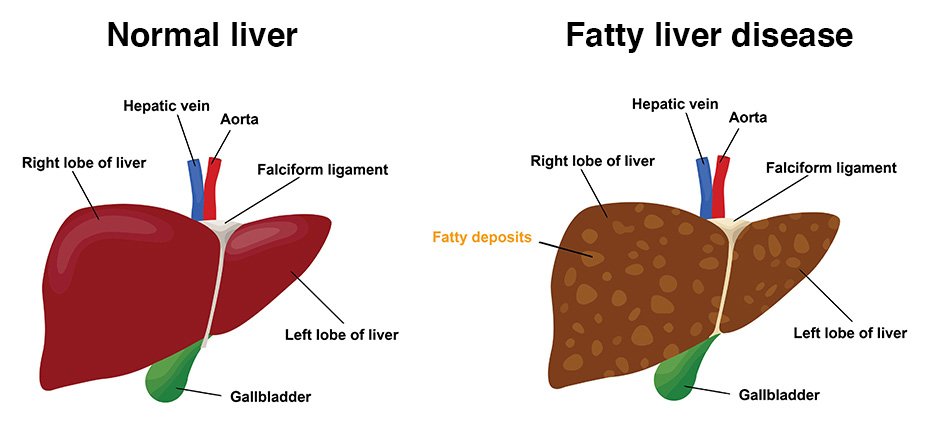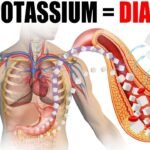Table of Contents
Forget everything you thought you knew about cholesterol. I’m here to tell you why I eat 4 eggs a day — and why you should consider it too. The truth is, this misunderstood superfood is packed with more brain-boosting, muscle-building, and vision-protecting power than you ever imagined…
Why You Should Eat Eggs Every Day
This article highlights many benefits of incorporating eggs into your diet daily
1. Eggs are an Excellent Source of High-Quality Protein:
- Eggs have high biological value, meaning your body can absorb and use their protein more efficiently for building tissues than other sources of protein.
- A full 48% of an egg’s protein gets converted directly into your body’s tissues. Compare this to meat and fish at 32%, and soy protein at a mere 17%.
- The yolk is essential for this complete protein absorption, making whole eggs superior to just egg whites.
- Eggs cause less of a spike in blood sugar (insulin response) compared to other protein sources.
2. Eggs are Packed with Vitamins and Minerals:
- Eggs are rich in essential vitamins and minerals such as:
- Vitamin K2: Crucial for strong bones and healthy arteries.
- Vitamin D: Promotes bone and teeth health, and works in synergy with Vitamin K2.
- Vitamin E: Supports heart health and gives you radiant skin.
- Vitamin A (Retinol): A highly absorbable form that is beneficial for vision and your immune system.
- Omega-3 Fatty Acids: You’ll find higher amounts in eggs from pasture-raised hens that get to eat insects as part of their diet.
- B Vitamins: Important for energy production and metabolism; eggs have a great range including B1, B2, B3, B6, and B12.
- Opt for gently cooked eggs (soft-boiled or lightly scrambled) to preserve the maximum amount of these vital nutrients.
3. Brain and Liver Health Get a Boost:
- Choline:
- It’s an essential nutrient for optimal brain health and cognitive functions.
- Choline aids in producing acetylcholine, an important neurotransmitter related to memory and learning.
- Choline acts as a bile salt in the liver, assisting with the breakdown and removal of fat; this can help prevent gallstones and protect you against fatty liver disease.
- Lecithin: Found in eggs as well, lecithin further assists in regulating healthy cholesterol levels.
4. Eggs Support Better Vision:
- Lutein & Zeaxanthin:
- These are the naturally occurring carotenoids that give egg yolks their vibrant yellow color.
- Found in high concentrations in your eyes, where they help protect your retina and lens.
- Lutein and zeaxanthin can lower the risk of age-related macular degeneration.
- They can help defend against the negative impact of blue light emitted from screens (computers, phones, etc.).
5. Enjoy Long-Lasting Energy:
- Due to their combination of protein and healthy fats, eggs provide a sustained source of energy, keeping you feeling fuller for longer and supporting better appetite control.
A Final Note: Choosing organic eggs from reliable sources can help you avoid unwanted hormones and chemical exposure. As always, prioritize a well-rounded and diverse diet for the best health outcomes.
So let’s dive into the details…
Why I eat 4 eggs daily

Today, I’m going to talk about why I eat four eggs a day and why you should as well. Now, you’re probably wondering why I consider myself an egg spirt on eggs! That’s an excellent question – sorry, I just had to do that! But it’s primarily because I’ve been eating so many eggs for so many years that makes me an expert. But there’s some really interesting information about eggs and why you should be eating more of them.
The Nutrition in Eggs: Don’t Judge an Egg by its Yolk Color!

Now, the first point I want to bring up is that you can’t really tell how good an egg is by the color of the egg yolk – well, at least recently.
Because they actually use synthetic coloring now that they give chickens to color the egg yolk to exactly what the farmer wants. And there’s actually 15 different shades between yellow and orange that you can pick to determine what color your egg yolk is going to be.
So unfortunately, the egg yolk nowadays doesn’t really tell you about the amount of nutrition in that egg yolk.
- Synthetic colorings are used to control egg yolk color.
- Farmers can choose from 15 shades between yellow and orange for their egg yolks.
- The color of the yolk doesn’t determine the nutritional value of an egg.

They also use different colorings in the meat itself so you can turn like a pale white color chicken meat into either yellow or a beige color.
So, apparently consumers demand a certain color of their chicken meat and their egg yolks! But if you’re not using these color dyes, and you look at the actual color of the yolk, you can tell how much carotenoids are present in that egg.
You can’t tell the nutrition by the color of the shell, okay, because they come in different colors. That doesn’t give you too much data.
The nutrition of an egg and a chicken is determined by how they’re raised and what they’re fed. And, unfortunately, chickens nowadays just have absolutely no flavor. Like, the chicken breast is bland. They actually have to flavor it!
- The meat of the chicken is often artificially colored, too.
- Natural yolk color can indicate carotenoid content.
- The color of the shell does not matter.
- How chickens are raised and what they are fed determine the nutrition of an egg and the chicken.
- Conventionally raised chickens are bland and have to be flavored.

I’m not kidding. Next time you go to the store, look at the label for chicken breast, and you’re going to notice it has “natural flavorings” or even “artificial flavorings,” because you’re trying to make this tasteless bland piece of meat taste more like chicken.
So, unfortunately, we have grown chickens for size. And we want chickens that can grow fast, because chickens are sold by weight.
Now, in 2015, the cost of a chicken was like seven dollars. Okay, now, to me, that’s actually pretty cheap, because, I mean you have to grow the chicken. You have to take care of the chicken. How are you gonna make any profit at all if you have to feed the chicken grain?
- Chicken is often sold with added flavors to improve the taste.
- Chicken is raised for size and speed of growth, not necessarily flavor.
- Chicken was $7 in 2015.
And most of these chickens that are sold conventionally are fed grain. They’re not allowed to go out and eat bugs, or worms, or any of that.
But in 1948, the cost of a chicken was like three dollars! Now, if we compare that to the dollar now, it would be like buying a chicken for 30 dollars. And that is because the quality back then is much greater than it is now.
- Conventional chickens are often fed only grain and don’t eat bugs or worms.
- Chicken cost $3 in 1948 which is equivalent to $30 today.
- The speaker believes chicken had higher quality in 1948.
Free-range Eggs vs. Cage-Free Eggs vs. Pasture-Raised Eggs

Now, before I get into the benefits of eggs, I want to just quickly talk about different terms that they use for eggs.
So you have “free-range” eggs, right? Well, what does that actually mean? Well, it means that they’re not in a cage. They are “cage-free,” but it doesn’t really mean that they can go outside.
It just means that they have “access” to the outside, and they don’t define access. It could be some small little hole in the barn that they never find.
- “Free-range” means the chickens are not in cages, but it doesn’t necessarily mean they go outside.
- Chickens labeled “free-range” must have “access” to the outside but it isn’t well defined.
Also, the verification process on “free range” is not followed up with an on-site inspection. So, there’s a lot of gray areas when you talk about “free range.” And then when we get to “cage-free”, it means that they’re just outside the cage, which is a step up.
- There is no on-site inspection to ensure “free-range” standards are being met.
- “Cage-free” just means that the chickens aren’t in cages, which is a slight improvement.
And what about “Grade A?” Well, that just means the shape of the shell is really nice, and it has no cracks. So, it’s really just a marketing thing.
Like I’m sure you never go home and go “Wow, honey! I have some Grade A eggs! They’re perfectly round and they have no cracks.”
- “Grade A” refers only to the appearance of the eggs – meaning the shell is a good shape and doesn’t have cracks.
- The speaker doesn’t feel “Grade A” is a useful designation for consumers.

Then you have pasteurized eggs, right? That does not mean “pasture-raised,” okay – raised on a pasture outside. It means that they’re heated, which preserves them, makes them last longer.
And then you get “vegetarian fed,” right? And yet, this sounds very wonderful, vegetarian-fed means you’re feeding them grains – like soy and corn – which are GMO. So, I would recommend getting organic pasture-raised type eggs.
- “Pasteurized” means the eggs have been heated to make them last longer, it has nothing to do with pastures.
- “Vegetarian-fed” sounds good but actually often means the chickens are being fed GMO soy and corn.
- The speaker recommends organic pasture-raised eggs.
Now, what is better than that? Well, buy your eggs for– at a farmer’s market, or if you have a little bit of space, raise your own hens and get your eggs that way.

And these are the type of eggs that they produce. They produce a lot of eggs – even in the winter, which they’re normally not supposed to produce.
We have like 16 eggs every single day, so we’re still trying to figure out what to do with all these eggs. But man, there’s such a big difference between these eggs that we’re consuming, and the eggs that you buy at the store.
And I’m doing a lot of experiments on growing animals and also growing vegetables. Testing certain things out in different soils. Feeding animals different things to see what produces the healthiest animal, and the healthiest plant, and I will be releasing this on a new YouTube channel.
- The speaker believes that it is even better to source eggs from a farmer’s market or to raise chickens at home.
- The speaker has firsthand experience raising chickens and getting lots of high-quality eggs year-round.
- The speaker is experimenting with various ways to improve the health of farm animals and will release the information on their YouTube channel.
But I will say that growing your own chickens, using organic grains – without corn and soy – is pretty darn expensive. So we’re experimenting on different ways of feeding animals that are not just healthier, but cheaper.

I mean check this out right here, this is called fodder. It’s sprouted barley. You start with a certain amount of barley seed, and then you let it sprout for seven days and it increases in weight by seven times. This is like crack for your chickens, they love it!
So, I will keep you updated on that very, very soon.
- Raising chickens on organic feed is expensive.
- The speaker is looking for healthier and cheaper ways to feed chickens, such as feeding them fodder (sprouted barley).
- Updates will be provided soon by the speaker.
Egg benefits
All right. So now let’s talk about the benefits of eggs and why you should be eating eggs. And just realize I don’t eat my eggs for breakfast, I eat them at my lunch because I fast, of course. It’s a late lunch, it’s probably around two, two thirty, maybe sometimes three o’clock.
- The speaker wants to move on to discussing the many benefits of eating eggs.
- The speaker eats eggs at lunch (around 2:00 or 3:00 PM) because they fast.
Egg Protein
So, number one: the protein in eggs is superior. And what I’m talking about is the anabolic effect, which means the ability of that egg to help build protein tissues in your body, and the percentage of how much that egg protein is converted into body protein–like your muscles, your joints, and other proteins as well.

So if we exclude breast milk, okay? Protein is at 48 – so 48% is turned into body tissue. If we’re talking about meat or fish, it’s only 32. And when we talk about soy protein, that’s like 17. And, as a side note, egg white is only 17!
When you add the yolk in there, you get more utilization, which is interesting. And then whey protein is only 16. So what happens to the other part of this protein? Well, it’s converted into glucose and used as fuel.
- Egg protein is of a superior quality to other sources, even meat and fish.
- 48% of egg protein is converted to body tissue. Compared with 32% for meat/fish, 17% for soy, and 16% for whey.
- Whole eggs are superior to egg whites (17%).
- Excess protein that is not turned into body tissue gets converted into glucose.
Now, there’s another little thing about this I want to mention. And it’s called insulin index. I talk about this in my book, but insulin index is the scale of how a non-carbohydrate food influences insulin.
And whole eggs–with the cholesterol–have a much lower insulin effect than egg whites. So, the more that you take out fat and have it as a pure protein–as in whey protein–the higher the insulin spike. So eggs, if you compare that to anything else, is basically the best protein for you. All right.
- Insulin index measures the effect of non-carbohydrate foods on insulin levels.
- Whole eggs have a low insulin index compared to egg whites.
- The speaker’s book discusses this topic.
Other benefits of egg
Next point is choline. Choline is really good for your brain. Choline acts as a bile salt in your liver. It helps break down cholesterol.

So it’s a good antidote for gallstones. It’s a good antidote for a fatty liver. And then we get to lecithin, which is also another antidote for cholesterol, to keep your cholesterol in check because eggs come with cholesterol, and a lot of people are concerned about cholesterol.
In fact, there was a study out that said that when you eat eggs, it increases your risk for death from heart attacks by I think 17%. But I did a whole article on that; I will put the link down below.
- Eggs are a good source of choline which is good for brain health.
- Choline is also good for the liver because it acts as a bile salt, breaking down cholesterol and helping prevent gallstones and fatty liver.
- Eggs also contain lecithin which also helps regulate cholesterol.
- The speaker believes a study linking egg consumption with a 17% higher risk of heart attacks is bogus, citing a separate article on the topic.
It’s a ridiculous study, based on a questionnaire – I wouldn’t even call it a study because this association was so weak and they didn’t talk about the million other variables that could have caused heart attacks. And without getting into it too much, eggs will increase your HDL uh- more than the LDL, but that’s for a different topic.
- Eggs may actually improve cholesterol levels by raising HDL (“good cholesterol”) more than LDL (“bad cholesterol”).
Now the other cool thing about eggs is that they have a good amount of vitamin K2, which keeps the calcium out of the arteries and keeps the calcium out of the joints.
And eggs also have vitamin D. So vitamin D and vitamin K2 work together, and there’s not a lot of foods out there that will give you vitamin D.
Eggs also have vitamin E–good for the heart, good for the skin. And eggs are loaded with vitamin A, the type that’s extremely bioavailable, and it’s called retinol.
So, part of these pigments in the vitamin A complex are like, yellow orange. So, the deeper the color, the more the vitamin A you’re going to get.
- Eggs contain Vitamin K2 which helps direct calcium to the bones while keeping it out of the arteries and joints.
- Vitamin D, also present in eggs, works with Vitamin K2 to promote bone health.
- Eggs contain Vitamin E (heart and skin health) and Vitamin A/retinol.
And eggs have omega-3 fatty acids, okay? Especially if they’re loud outside, so they can eat worms and insects. Eggs are loaded with B vitamins – B1, B2, B3, B6, B12.

Now I did mention that I feed my chickens an organic grain, without the soy, without the corn. That grain is fermented for three days to release a lot of the B vitamins and other nutrients that are locked up in that grain, and not only is that more nutritious, you can feed them less because it helps their digestion. Eggs also have trace minerals and minerals.
- Pasture-raised eggs are a source of omega-3 fatty acids from eating insects.
- Eggs are rich in many B Vitamins, including B1, B2, B3, B6, and B12.
- The speaker feeds their chickens organic, fermented grains, which unlock more nutrients including B vitamins.
Eggs also have carotenoids, okay? That is a nutrient-dense pigment that gives that yolk the color, but it also has a lot of health benefits, okay?
Now, the two big carotenoids are number one: lutein, which is yellow in color, and zeaxanthin, which is more orange. Both of these pigments greatly improve the eye. In fact, the greatest concentration of these carotenoids are in the eye,
so they support the lens, the retina, they help prevent macular degeneration, they help reduce the blue light that you’re exposed to with all your computers and cell phones etc. But there’s a lot of other benefits, too, for your brain as well.
- Eggs also contain carotenoids (like lutein and zeaxanthin), which are pigments that have many health benefits.
- Lutein and Zeaxanthin are particularly beneficial for the eyes.
How do you cook an egg to maximize nutrition?

Now, one question that has been asked is: How do you prepare an egg to maximize the nutrition in the egg because if you’re going to heat it too much you might destroy some of the carotenoids.
And so poached or over-easy would be a great way to do that. Or, if you want scrambled, what I’d recommend is: crack the egg inside the pan, let the whites turn a little white, and then turn the heat down, and then mix it up and scramble it after the white part has turned a bit white.
This allows you to preserve a lot of these nutrients as compared to taking your egg in a bowl and mixing it up, and then putting it in the frying pan.
- Cooking methods that use less heat, such as poaching or cooking eggs over easy, are best for preserving nutrient content.
- To scramble eggs without losing as many nutrients, let the whites cook a little in the pan before turning down the heat and stirring in the yolk.
So, now that you know the benefits of eggs, if you’re a small person, maybe you only have one or two eggs. If you’re a larger person, have three or four.
- Smaller people might eat 1-2 eggs, while larger people can eat 3-4 eggs.
Check out my Topic on the cholesterol in eggs!
And if you have any considerations about the cholesterol and eggs, you gotta check out this Topic right here.
Summary
- The nutrition of an egg is determined by how the chicken is raised and by what it’s fed. I recommend getting organic pasture-raised eggs. Getting your eggs from a farmer’s market is a great idea or even raising your own chickens for eggs.
- It’s important to note that I do not eat eggs for breakfast. I eat them for a late lunch because I fast breakfast. It’s also important to consume the whole egg vs. only egg whites.
- Heating an egg can destroy some of the carotenoids. To maximize the nutrition of the eggs, it’s great to have them poached or over-easy. If you like them scrambled, it’s best to crack them inside of the pan and allow the whites to turn white before scrambling them.
If you’re a small person, you may want to consume one or two eggs a day. If you’re a larger person, you may want to consume three or four.
Health benefits of eggs:
• Eggs are a great source of protein
• Eggs contain choline
• Eggs contain lecithin
• Eggs have vitamin K2, vitamin D, vitamin E, and vitamin A
• Eggs are rich in omega-3 fatty acids
• Eggs are loaded with B vitamins
• Eggs have minerals and trace minerals
• Eggs contain carotenoids
DATA
FAQ
What happens when you eat eggs every day?
Eating eggs daily can provide numerous health benefits due to their rich nutrient profile. Eggs are an excellent source of high-quality protein, essential vitamins (such as B12, riboflavin, and folate), and minerals (like selenium and phosphorus). Regular consumption can support muscle strength, brain health, and eye health due to the presence of antioxidants like lutein and zeaxanthin.
However, the impact on cholesterol levels has been a topic of debate. While eggs do contain dietary cholesterol, recent studies suggest that for most people, moderate egg consumption does not significantly affect blood cholesterol levels or increase the risk of heart disease.
Can I eat 6 eggs a day?
Eating six eggs a day is generally considered excessive for most individuals. While eggs are nutritious, consuming them in such large quantities may lead to an increased intake of cholesterol and saturated fats, which could affect heart health in some people. It’s advisable to consult with a healthcare provider or nutritionist to determine the appropriate amount based on individual health needs and dietary goals.
Is 4 eggs a day safe?
For many healthy adults, consuming four eggs a day can be safe and beneficial, especially if they are part of a balanced diet. Studies indicate that this level of egg consumption does not adversely affect cholesterol levels in most people. However, those with specific health conditions, such as diabetes or heart disease, should consult their healthcare provider for personalized advice.
Can I eat 10 eggs a day?
Consuming ten eggs a day is generally not recommended due to the high cholesterol and calorie intake. While eggs are nutritious, moderation is key. Excessive consumption may lead to elevated cholesterol levels and other health issues. It is important to balance egg intake with other protein sources and maintain a varied diet.
Side effects of eating eggs every day
While eggs offer many health benefits, potential side effects of daily consumption may include:
- Increased cholesterol levels in sensitive individuals.
- Potential allergic reactions in those with egg allergies.
- Risk of foodborne illness if eggs are not cooked properly.
4 eggs a day benefits
Eating four eggs a day can offer several benefits:
- High Protein: Supports muscle repair and growth.
- Nutrient Dense: Provides essential vitamins and minerals.
- Weight Management: High protein content can promote satiety and help with weight loss efforts.
Benefits of eating eggs every day
Daily egg consumption can lead to:
- Improved muscle strength and function.
- Enhanced brain health due to choline content.
- Better eye health from antioxidants like lutein and zeaxanthin.
- Support in weight management due to high protein and low calorie density.
Eating 4 eggs a day to lose weight
Incorporating four eggs into a diet aimed at weight loss can be effective due to their high protein content, which promotes feelings of fullness and reduces overall calorie intake. Additionally, eggs are low in calories and can be part of a balanced diet that supports weight loss.
What happens if I eat eggs for breakfast every day?
Eating eggs for breakfast daily can lead to:
- Increased protein intake, aiding in muscle maintenance.
- Better satiety, potentially reducing snacking later in the day.
- Improved blood sugar control due to a balanced breakfast.
Egg benefits for men
Eggs offer specific benefits for men, including:
- High Protein: Essential for muscle maintenance and growth.
- Nutrient-Rich: Supports overall health, including reproductive health due to choline and vitamin D.
- Weight Management: Helps in maintaining a healthy weight due to high satiety levels.
Will I gain weight if I eat 2 eggs a day?
Eating two eggs a day, as part of a balanced diet, is unlikely to cause weight gain. Eggs are nutrient-dense and can contribute to a feeling of fullness, which may help control overall calorie intake. Weight gain occurs when there is a consistent caloric surplus, not solely from specific foods.
How many eggs per day?
The recommended number of eggs per day varies based on individual health goals and dietary needs. For most healthy adults, consuming up to 1-2 eggs per day is considered safe. Those with specific health concerns should consult with a healthcare professional for tailored advice.




